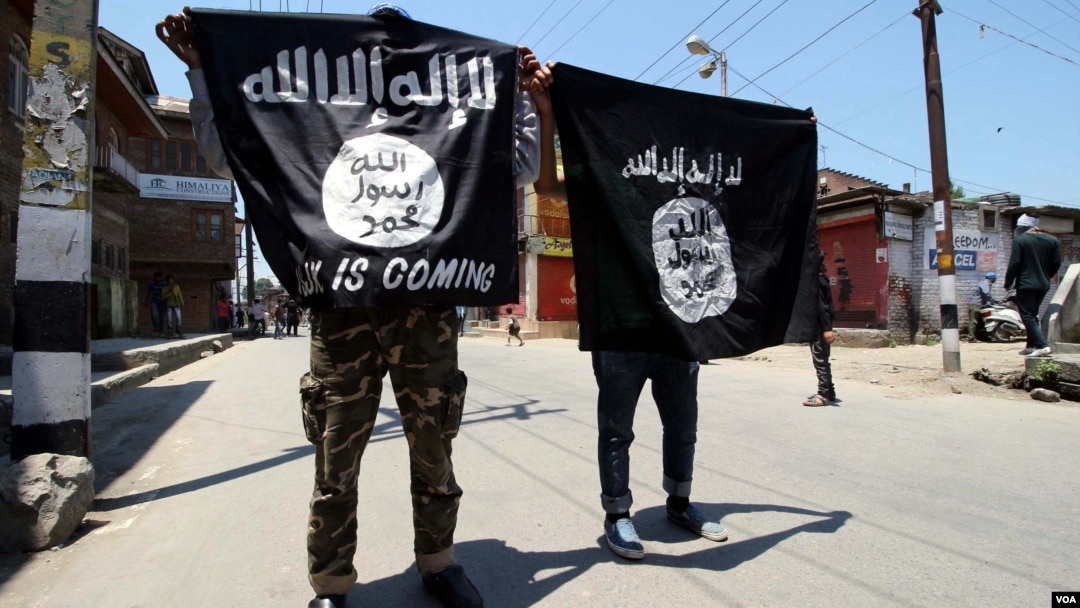Muslim religious leaders and Islamic scholars in India have issued two fatwas, or religious edicts, calling Islamic State an “un-Islamic” group and condemning its activities as antithetical to the tenets of Islam.
The first fatwa, issued in Mumbai last week, was endorsed by more than 1,000 clerics and religious scholars across the country. An Islamic seminary in Lucknow issued the second fatwa Wednesday. Both fatwas condemned IS as inhuman.
“Islam preaches its followers to shun violence, while Daesh [IS] indulges in it regularly. … It is an un-Islamic group,” said the fatwa issued in Mumbai.
The fatwas came days after India announced a plan to launch deradicalization programs for Muslim youths being attracted to the ideology of IS, and amid reports that the militant group has tried to recruit youths from India, home to the world’s second-largest Muslim population.
India’s Muslim community has welcomed the fatwas.
Zafarul-Islam Khan, president of the All India Muslim Majlis-e-Mushawarat, a New Delhi umbrella body of Indian Muslim organizations, said, “Many Muslim scholars and thinkers in the country condemned IS for its un-Islamic activities." The fatwas, he said, "reflect the community’s view about the militant group.”
Youths recruited
According to an Indian home ministry report, after IS launched a fierce social media campaign for support, 17 Muslim youths traveled out of India and joined IS in Iraq and Syria over the past three years.
After one Indian handler of a pro-IS Twitter account was arrested in Bangalore in December, the government banned the group.
After media reports revealed that a few Muslim boys from Maharashtra had joined IS and one or two had died while fighting in Iraq and Syria, community leaders in the state began taking steps to deter young people from joining the group.
“We launched a countrywide exercise mobilizing the clerics, community leaders and scholars some months ago. The result came in the form of 1,100-page fatwa after all viewed IS as un-Islamic,” Mumbai-based cleric Mohammed Manzar Hassan Ashrafi Misbah, who issued the fatwa, told VOA.
“The summary of the fatwa is being circulated across all mosques in the country so that through Friday khutbah [the sermon], the clerics can spread our views about the IS in the community,” he said.
Maulana Khalid Rasheed Farangi Mahli, shahi imam of the city of Lucknow, who issued the second anti-IS fatwa, said many young Muslims lack a full understanding of IS and what it represents.
"In Kashmir, we have seen youths with banners of IS. In the country there must be some prone to show interest in IS. Our fatwa explains with reference from the holy scriptures how the IS acts of killing innocent people and damaging religious places of other religions is forbidden in Islam,” Maulana Farangi Mahli said to VOA.
“The fatwa from Mumbai and the one from us in Lucknow aim to trigger a countrywide campaign to spread awareness in the community about the group," he said. "We do not want a single Muslim boy to get attracted to the un-Islamic IS.”
A good impact
Maulana Mohammad Shafique Qasmi, chief cleric of Kolkata’s Nakhoda Masjid, said the latest anti-IS fatwas will have a good effect on society.
“IS traps Muslim youth by spreading distorted interpretations of the Quran and Islam," Maulana Qasmi said to VOA. "The fatwas issued by top clerics and scholars will be able to convince vulnerable people that IS’s foundation is not Islamic at all, and that the group has been fooling Muslims in the name of Islam.
“When such fatwas convey the view that IS is un-Islamic," he added, "most Muslims lay credence to them.”
However, New Delhi-based Muslim issue expert Hilal Ahmed said the fatwas might not be as effective as the clerics and many others believe, and that there can be two ways to look at them.
“One may describe the fatwa as a positive move that simply goes against the established stereotypical public image of stagnant Islam/backward Muslims," Ahmed, an assistant professor at the Center for the Study of Developing Societies, said to VOA. "Such a response, no doubt, has a political value, primarily in the Indian context."
However, there can be another, rather nuanced reading of the fatwas, he said.
“Muslims, we must note, are highly diversified," he said. "The IS kind of entity has no place in the religious culture imaginations of Muslim communities, at least in India, Thus, such fatwas need not to be overemphasized, as Muslims of India are not represented by the religious elites.”


